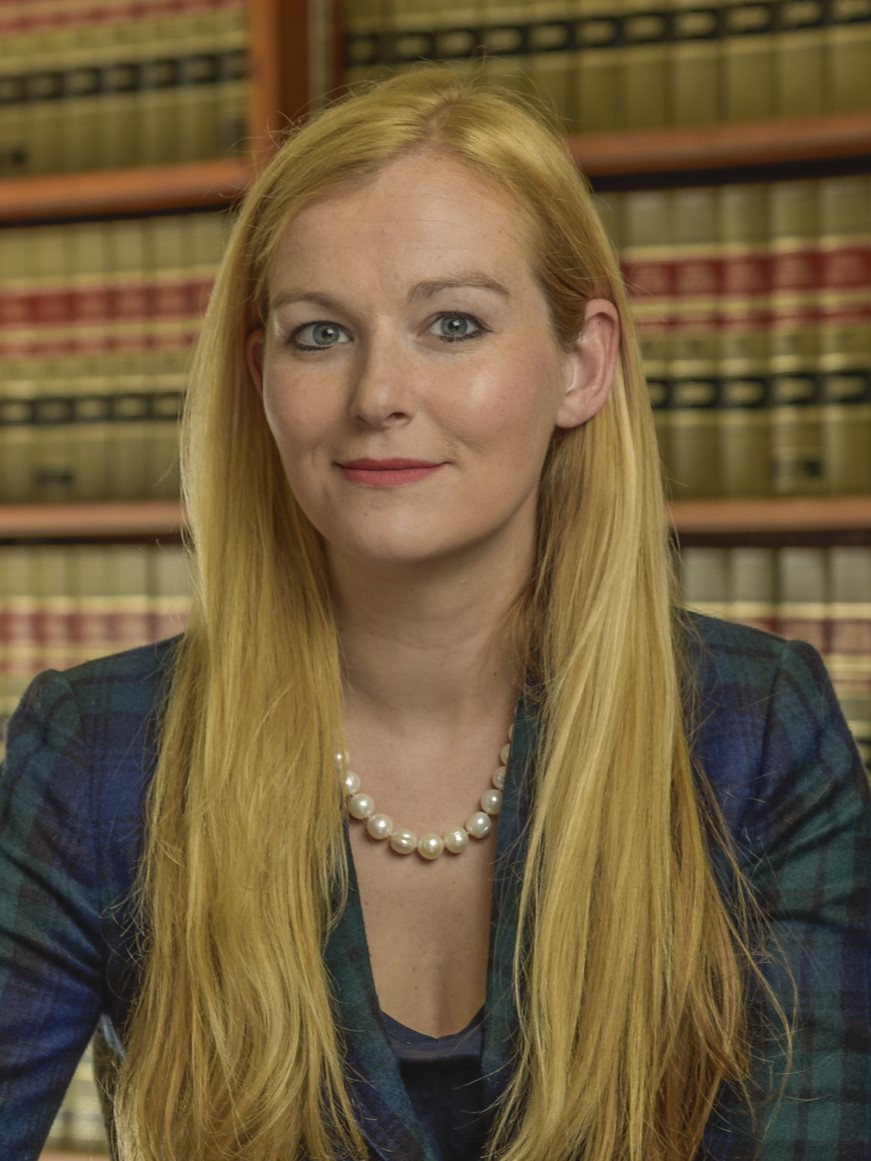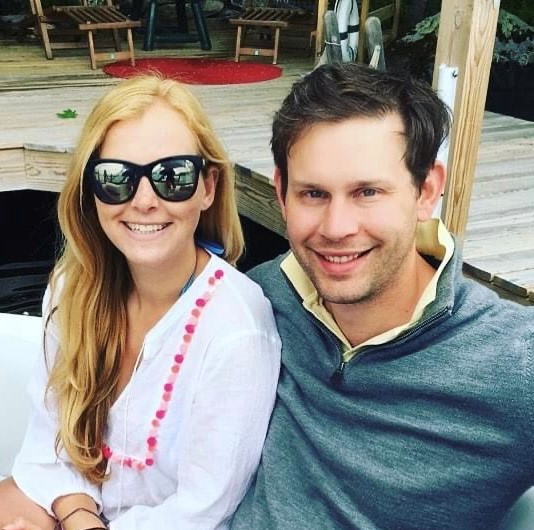A return to her roots pays dividends for N.Y. attorney
Articles
Attorney Spotlight
View more from News & Articles or Primerus Weekly
By Brian Cox
If someone had told Alexandra Becker when she headed off to college in Baltimore that she’d ever move back to her small hometown in upstate New York, she’d have called that person crazy.
As it turned out, though, that person would have hit the nail on the head.
She and her husband, John, now live minutes from where she grew up in Loudonville, which is just north of the state capital of Albany, and she works in the law firm where her father is Of Counsel.
“I absolutely love it,” she says, laughing at the irony.
Nolan Heller Kaufmann LLP in downtown Albany is a boutique business law firm founded in 1964 that has established a statewide reputation for its work in creditors’ rights and bankruptcy.
Becker, who describes her practice as a “bit of an outlier” in the firm, specializes in liquor law and licensing, gaming law, and corporate and securities – areas of practice in which her father, Rich Burstein, has been invaluable as a mentor.
“Frankly, because I was working with him, and he had a lot of faith in me, I was kind of thrown into the fire a lot faster than I think I would have been otherwise,” says Becker. “I was so fortunate to have some mentors who very early on took a leap of faith on me.”
Becker joined the firm in 2014 after working there as a summer associate, her first summer out of Villanova University School of Law. She found the firm and its people were an ideal fit for her.

Before becoming an attorney, Becker earned her undergraduate degree in international studies at Johns Hopkins University with general ideas about working in government or consulting of some nature. It was her father who encouraged her to consider law school, saying it “really teaches you how to think.”
But what sealed the deal on law school as Becker’s next step was when she was thinking of pursuing a career in fashion the summer before her junior year at Johns Hopkins— much to her parents’ distress, she adds.
She spent that pivotal summer in a dual internship – one at a law firm and one at Teen Vogue in New York City. The experience was eye-opening and drew a sharp, clear career line for Becker.
“[It was the] best possible thing I could have done,” she says. “Fashion, as a career, was not for me. I realized if I’m going to be dealing with people’s problems all day, I needed them to be bigger issues.”
Law school brought the added benefit that it is where Becker met her future husband. They “met the first moment of the first day,” she says. The couple is approaching their fifth wedding anniversary.
“We joke that if we can get through three years of law school together and study for the bar exam together, it’s a pretty good test of a marriage.”
Becker says that, her first two years at Nolan Heller Kaufmann, LLP had her involved with a diverse range of practice areas, clients, and colleagues as a way to help her find where her specific interests and talents might lie. She found it first in liquor law and licensing.
“I like to joke I consider what I do to be at least as exciting as the law is going to get,” says Becker. “I genuinely love it. There’s always something different.”

Over the years she has shepherded hundreds of clients through the legal and bureaucratic labyrinth of obtaining a liquor license, and still, she is amazed how many times she comes across a completely new issue that needs to be worked through.
“It’s fun,” says Becker. “What I really like about it, too, is it’s a great continuing type of business. … I have many clients who have been with me for a long time.”
As a New York attorney with a wide client base in the service industry, Becker experienced the COVID-19 pandemic up close, as her clients struggled desperately during lockdowns to stay afloat.
“It was tricky,” says Becker. “For a lot of my clients, they couldn’t open at all except for take-out.”
Restaurants and bars were operating at limited capacities, trying to meet new guidelines, scrambling to construct outdoor serving areas, all while staying in compliance with the New York State Liquor Authority. Liquor stores, on the other hand, were booming, because they were classified as an essential business.
“It was definitely a rough couple of months,” says Becker.
She points to Gov. Kathy Hochul recently legalizing the sale of alcoholic beverages “to-go” through 2025 as a significant game-changer in liquor law. Hochul’s predecessor, Andrew Cuomo, originally put the initiative in place as a temporary measure during the height of the pandemic.
“Many of my clients frankly credited that for them being able to keep their doors open,” says Becker. “When that expired, many people were really upset about it.”
While there was an understandable drop-off in new applications for liquor licenses over the pandemic years, Becker says she is finally seeing a turnaround.
“People are confidently opening new businesses, which is great to see,” she says. “We lost so many during COVID.”
The pandemic brought dramatic and abrupt changes to law firms, as well. Becker’s firm, similar to many others, went remote in early 2020 and is now operating under a hybrid model.
“I do think COVID kind of forced the issue in particular with the legal profession,” says Becker. “Working from home prior to COVID was not terribly common even though we already had the ability to do it.”
It is a change for the better, in her opinion, and she senses younger attorneys have been less eager to return to the office. The flexibility of working remotely comes with a double-edge, however.
“There’s definitely been a bit more of an expectation that you’re always available,” she says. “The boundary between working hours and non-working hours has faded a bit.”
Earlier this year, Becker joined the Executive Committee of the new Primerus Cannabis Practice Group, which was formed in response to a burgeoning legal marijuana market that by some estimates is projected to grow to $111 billion by 2028.
New York legalized recreational marijuana in 2021 and is still creating the necessary statutes and regulations. Becker says the Office of Cannabis Management, which will issue licenses for retail and manufacturing, will effectively be a sister agency under the same umbrella as the State Liquor Authority.

Becker sees many correlating issues between liquor and marijuana licensing, in terms of criteria to hold the license, statutory disqualifications, and where different businesses can be located in proximity to schools or churches.
“I think it’s going to be a natural extension of my practice,” says Becker. “A lot of the issues are going to be very similar [to liquor licensing], and so that’s why we’re working to stay on top of the developments, as they emerge, and to position our clients accordingly.”
Becker says the Primerus Practice Group has been a critical resource for helping keep on top of how states are legalizing and creating the regulatory framework for marijuana and to discuss with attorneys from where the industry is well advanced what has worked well and what has not.
“One of the major issues is going to be the real estate,” says Becker. “Under most circumstances in order to apply for your retail license, you have to have some kind of commitment to your real property – a lease, a deed, a letter of intent – even though you have no way of guaranteeing you’re going to get the license.”
She is urging her clients to focus on locking in their real estate now, well ahead of applying for a license.
It’s an exciting time as businesses continue to adapt to the pandemic’s consequences and New York readies to usher in a new industry that requires an extensive regulatory framework, according to Becker.
“It’s really fun to be on the front line of not only something new, but also something that is a logical expansion of my practice based on my prior experience,” says Becker.